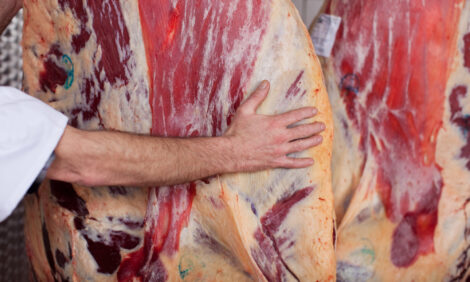



Blow for Badger Cull as Industry Agrees to Postpone
UK - Despite pressure from farmers to go ahead with a badger cull in an attempt to control bovine tuberculosis (TB), the NFU and Defra have agreed to postpone the pilot cull until summer 2013, following new survey results showing higher than anticipated badger numbers in the two pilot areas.The National Farmers' Union has said that the announcement delaying the two badger cull pilots expected this autumn was exceptionally difficult but on balance is responsible and right.
With just weeks left of the autumn, the companies working to deliver this element of the government’s TB eradication policy have agreed with the NFU and government to postpone until next year.
NFU President Peter Kendall said he understood that today’s news would come as devastating blow to farmers who are desperate for a solution to the cycle of reinfection of TB in their beef and cattle herds.
On recieving the letter from the NFU and other interested parties, Environment Secretary Owen Paterson said: "Despite a greatly increased effort over the last few days and weeks, the farmers delivering this policy have concluded that they cannot be confident that it will be possible to remove enough badgers based on these higher numbers and considering the lateness of the season. It would be wrong to go ahead if those on the ground cannot be confident of removing at least 70 per cent of the populations."
"The Government is determined to tackle bovine TB by all the means available to us. Now, in the next few months, we will ensure that the pilot culls can be implemented effectively, in the best possible conditions, with the right resources. Having looked at all the evidence over many years, I am utterly convinced that badger control is the right thing to do, and indeed the higher than expected badger numbers only serve to underline the need for urgent action. I remain fully committed to working with the farming industry to ensure that the pilot culls can be delivered effectively, safely and humanely next summer."
Mr Kendall said: “We have always said that this is has to be a science-led policy to reduce disease and we have to be confident of achieving the numbers needed for disease reduction. As we rapidly approach winter the odds of achieving that number decrease. This is why, reluctantly, we have taken the decision, with the companies involved, to delay until late spring next year.
“For those that have suggested that this cull is irresponsible, I think today’s decision shows that this is simply not the case. Postponement is the most responsible thing to do. We have said all along that this has never been about killing badgers; this has always been about eradicating disease. It has been about the battle to get on top of the TB on our farms that strikes at the very heart of our beef and dairy herds."
The British Veterinary Association has said that it is relieved that there has been no u-turn on the Government's TB eradication policy.
Commenting, British Veterinary Association (BVA) President Peter Jones said: “Although vets and farmers in the bovine TB endemic areas will be frustrated by the delay in implementing the pilot badger culls, we are relieved that Defra has firmly stated that there has been no change in Government policy.
The recent survey results revealed that the estimated badger populations of 4,300 in West Somerset and 3,600 in West Gloucestershire were far higher than previous data suggested. The criteria for the two pilots included the need to successfully remove a minimum of 70 per cent of the local population, which the scientific evidence has shown is required in order to have a positive effect in reducing TB.
Commenting on this decision the RSPCA has said it is delighted with the announcement.
The Stop the Cull/Team Badger campaign has been pushing for the UK Government to follow the Welsh Government which, using the same scientific evidence as Defra, has begun a five year vaccination program of badgers in Wales.
TheCattleSite News Desk


